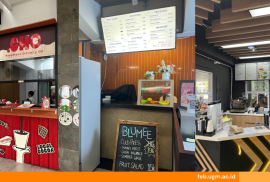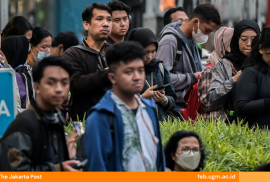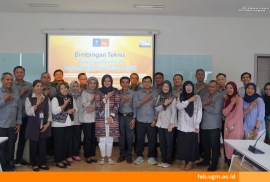On Friday, (22/07) the Alumni Family of the Faculty of Economics and Business Universitas Gadjah Mada (KAFEGAMA) in collaboration with PT Pupuk Kaltim held a seminar which is one of a series of events in the Pupuk Kaltim – Gadjah Mada Business Case Competition (PKT-GAMA BCC). The event was held offline at the Binakarna Auditorium Hotel Bidakara Jakarta and online through Zoom Meetings with the theme “Smart Farming to Improve Agricultural Productivity and Sustainability.”
The event was opened with remarks given by Eddiwan Danusaputro as Coordinator of PKT-GAMA BCC 2022 as well as President Director of PT BNI Modal Ventura. Eddi thanked Pupuk Kaltim for being the exclusive sponsor of the PKT-GAMA BCC 2022 event. Eddy also conveyed a message to the participants that if the business idea made is good, even if it doesn’t get a winner, it can still be used as a start-up. He also expressed his enthusiasm for the PKT-BCC GAMA participants in the final round.
During the seminar, Prof. Dr. Catur Sugiyanto, MA, Ph.D. a Professor of FEB UGM became the moderator leading the seminar. Previously, Chess gave a discussion on the topic of Smart Farming and Productivity. He explained about smart farming which is carried out using robots, machines, information and management knowledge, and precision agriculture. In dealing with new technology, Catur explained that the use of technology that was decided by the farmer was based on the goals that the farmer wanted to achieve and the influencing external factors as well as the attitude of the farmer with that influence.
This seminar was attended by Emilia Tri Setyowati as Executive Secretary of Bina Swadaya and Chair of the Indonesian Organic Alliance Council. Emil explained about Bina Swadaya which is a Community Social Institution (NGO) with a vision to become a social entrepreneurship institution that is recognized for its pioneering and excellence in increasing community empowerment. Bina Swadaya has many subsidiaries such as Wisma Hijau, Toko Trubus. Indonesia’s agricultural problems are caused by land ownership that is less than 0.2 ha/household, low levels of education and literacy of farmers, lack of farmer regeneration, and lack of use of technology and innovation. In 2019, the proportion of the population working as farmers shrank by 28.5%. Emil explained that the strategy that can be done is to regenerate farmers by creating agripreneurs for youth.
Furthermore, David Setyadi Gunawan as Founder & CEO of Eden Farm explained that if you become an entrepreneur, you will be paid to solve a problem. He also explained that farmers in Indonesia are still traditional when compared to farmers in foreign countries. Therefore, Eden Farm helps traditional farmers through its technology, provides a supply of funds, and helps in the distribution of agricultural products.
Finally, Andi Nur Alam Syah as Director General, Plantation also said that plantation commodities are very close to industrial commodities that require IT. The existence of the industrial revolution 4.0 is a new challenge for the plantation sector. He emphasized that Industry 4.0 must be used as a locomotive from industry 1.0 to 3.0 to achieve more optimal growth. If it has reached industry 4.0, it is estimated to be able to absorb labor by 30%-50% of the additional workforce in 2030.
Reportage: Merisa Anggraini




